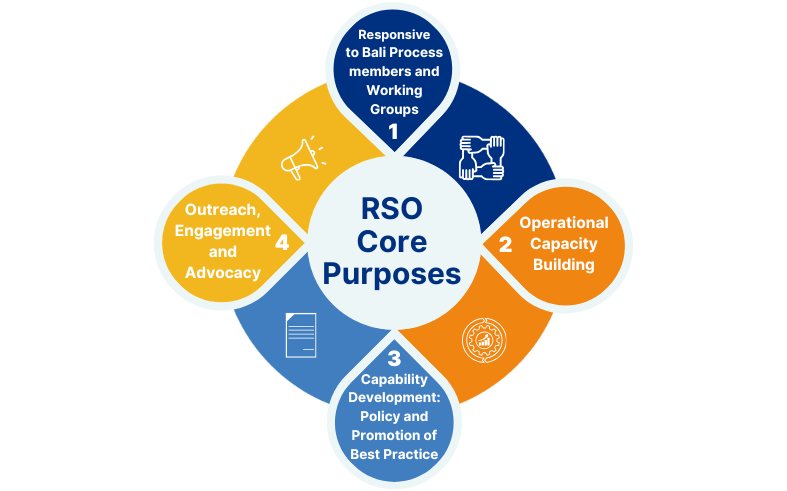RSO Core Purposes
RSO Core Purposes
The RSO Core Purposes set out how the RSO actively works to be responsive to Bali Process Members and Working Groups, delivers operational capacity building across Member States, support policy development and promotes best practice and how the RSO actively engages and promotes our work.

Core Purpose 1: Responsive to Bali Process members and Working Groups
We engage with Bali Process members to deliver activities that contribute towards commitments and undertakings arising from Bali Process meetings. We source and provide specialist technical assistance to Bali Process members, Task Forces and Working Groups.
Core Purpose 2: Operational capacity building
We work with Bali Process members and partners to develop and deliver fit-for-purpose operational capacity-building activities relevant to the mandate of the Bali Process.
Core Purpose 3: Capability development: Policy and promotion of best practice
The RSO conducts research and provides access to information and resources that support dialogue, policy development and promotion of best practice across Member States to improve responses to people smuggling, trafficking in persons and related transnational crime—through a victim-centered approach.
Core Purpose 4: Outreach, engagement and advocacy
We engage and promote the work of the RSO to partners and dialogues outside of the Bali Process architecture, and publicly advocate on our issues and activities. We act as a connector for Bali Process members, providing opportunities for information sharing, dialogue and input through RSO networks and events.
RSO Guiding Principles
RSO Guiding Principles
The RSO’s Guiding Principles set out how the RSO undertakes its work including the RSO’s values of operating impartially, ethically, respectfully, and professionally—with integrity, inclusivity, and honesty. The Guiding Principles support the RSO to operate in line with international law, norms and standards.



